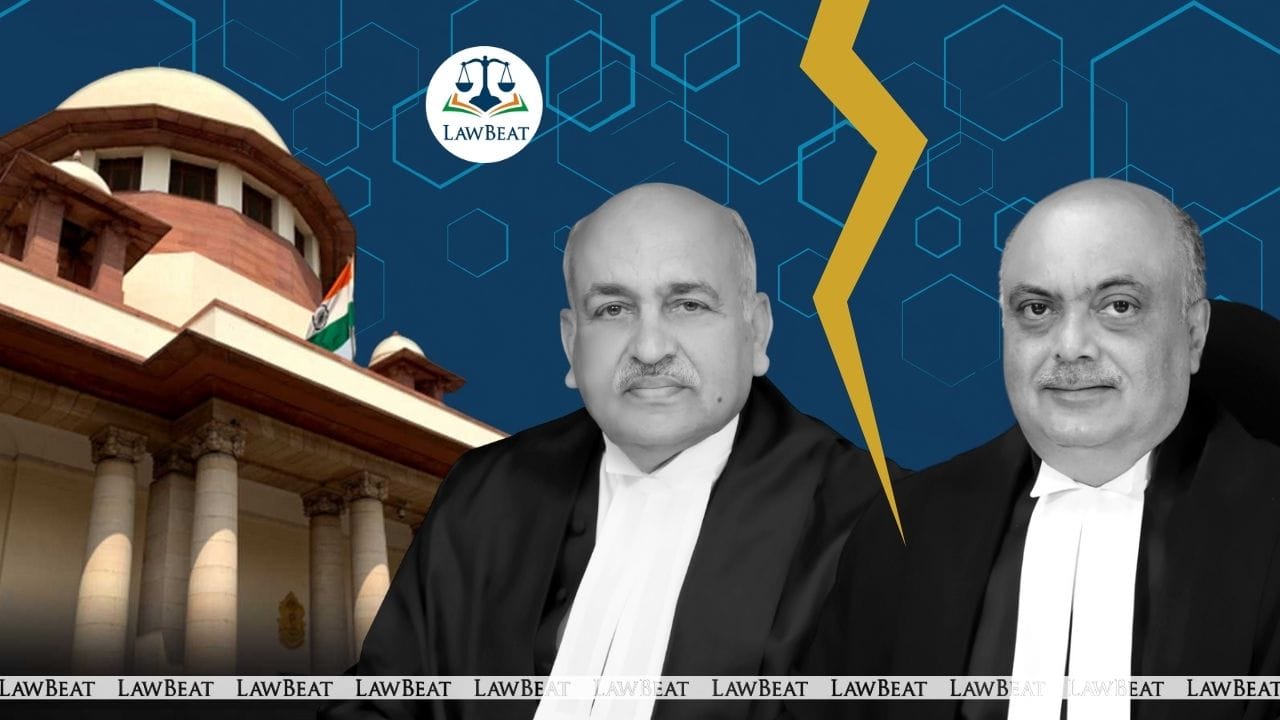Supreme Court Delivers Split Verdict on Delhi riots accused Tahir Hussain's Bail Plea

Notably, Tahir Hussain approached the Top Court challenging the Delhi High Court's order, which had denied him interim bail but granted a custody parole in order to file his nomination for the Delhi Legislative Assembly elections
The Supreme Court of India today pronounced a split verdict in a plea moved by All India Majlis-e-Ittehadul Muslimeen (AIMIM) candidate and Delhi riots accused Tahir Hussain, seeking interim bail for campaigning ahead of the Delhi Assembly polls.
While hearing Hussain's plea against the Delhi High Court's order, which granted custody parole but denied him interim bail, a bench of Justices Pankaj Mithal and Ahsanuddin Amanullah passed a split verdict today. While Justice Pankaj Mithal dismissed the petition, Justice Ahsanuddin Amanullah allowed Hussain interim bail.
In view of this, the registry was accordingly directed to place the matter before the Chief Justice of India for his consideration or to refer the matter to a larger bench.
In delivering the verdict today, Justice Pankaj Mithal highlighted that the present case pertains to the murder of Ankit Sharma, an Intelligence Bureau official under the Ministry of Home Affairs, adding that the allegations if considered cumulatively, are very serious.
"The petitioner argues that a mere grant of custody parole for nomination is not sufficient if the petitioner is not allowed to canvass. Undisputedly, the petitioner’s right to contest elections is protected; however, the right to canvass is neither a fundamental nor a statutory right. It lies solely at the discretion of the court whether the petitioner can be allowed to be released for the above purpose," Justice Mithal added.
While warning against interim bail, Justice Mithal said such a situation would open a pandora's box, as elections are held throughout the year. He added that this would enable every undertrial prisoner to come before the court to contest elections, leading to a floodgate of litigation, which cannot be permitted.
"Moreover, permitting interim bail will necessarily imply that the petitioner would engage in door-to-door canvassing and other physical methods of campaigning. This would include holding meetings in the locality and visiting voters door-to-door. It must be noted that the incident in question occurred in the same locality. If the petitioner moves around the locality, there is a high possibility of witness tampering," Justice Mithal further went on to observe.
He further emphasised that a chargesheet had been filed and that the petitioner’s role in the commission of the crime had been established. He added that the petitioner’s house was being used as an epicentre for the commission of the crime.
On the other hand, Justice Ahsanuddin Amanullah acknowledged that Tahir Hussain had been incarcerated for almost five years, making it reasonable to give him a chance for the remaining few days to convince the electorate.
"I have examined the allegations against the petitioner, and no doubt they are grave and serious. However, it is settled law that the magnitude of the offence and its gravity are not the only criteria for bail cases. I am of the considered view that, subject to appropriate conditions, the petitioner shall be enlarged on interim bail, " Justice Amanuallah ordered.
During the hearing today, Additional Solicitor General S V Raju, appearing for the Delhi police, said, "This is a gimmick to secure interim bail. If this is allowed, everyone will come rapists, and murderers seeking release. Look at the number of people who died. His house was the epicentre, with a large number of missiles, weapons, stones, mortar, and arms found on his terrace. He was a councillor with AAP, but the party did not give him a ticket. To contest elections, you must nurture your constituency over a long period of time."
In opposition, Senior Advocate Siddharth Agarwal, appearing for Tahir Hussain, requested the bench to grant Hussain interim bail. He told the bench that Hussain had been in custody for 4 years and 10 months. "It must be noted, Lordship, that in 8 out of 11 cases, I am on bail, he added.
During the last hearing, the Supreme Court of India had sought the Delhi Police's response in a plea filed by Tahir Hussain, seeking interim bail to campaign ahead of the Delhi Assembly polls. A bench of Justices Pankaj Mithal and Ahsanuddin Amanullah had deferred the hearing to 22 January after Advocate Rajat Nair, appearing for the Delhi Police, sought time to take instructions.
On 20 January, the Top Court had said that all such persons should be barred from contesting polls while hearing Hussain's bail plea. However, due to a paucity of time, the court had to adjourn the matter to 21 January.
On 15 January 2025, the Delhi High Court granted custody parole to Tahir Hussain to allow participation in the electoral process for the Assembly Elections from Mustafabad Constituency. The bench of Justice Neena Bansal Krishna held, “Merely because the Applicant/Petitioner had earlier been a Municipal Councilor, cannot be a peculiar circumstance entitling him to grant of Interim Bail”.
The court noted that Hussain was implicated in multiple cases related to the Delhi Riots of 2020. Additionally, it was noted that the investigation revealed the recovery of materials such as stones, bricks, petrol bombs, and acid drums from his residence, allegedly used during the riots.
The court permitted custody parole for the Applicant to take an oath and complete the formalities for filing nomination papers for the Delhi Assembly Elections, 2025, under strict conditions. These conditions included restrictions on communication, prohibition of media interaction, and limitations on social media activity by his family. The State was directed to facilitate the nomination process without undue delay. The Jail Superintendent and relevant authorities were instructed to ensure compliance, and the application was accordingly disposed of.
Case Title Mohd Tahir Hussain v State of NCT of Delhi
